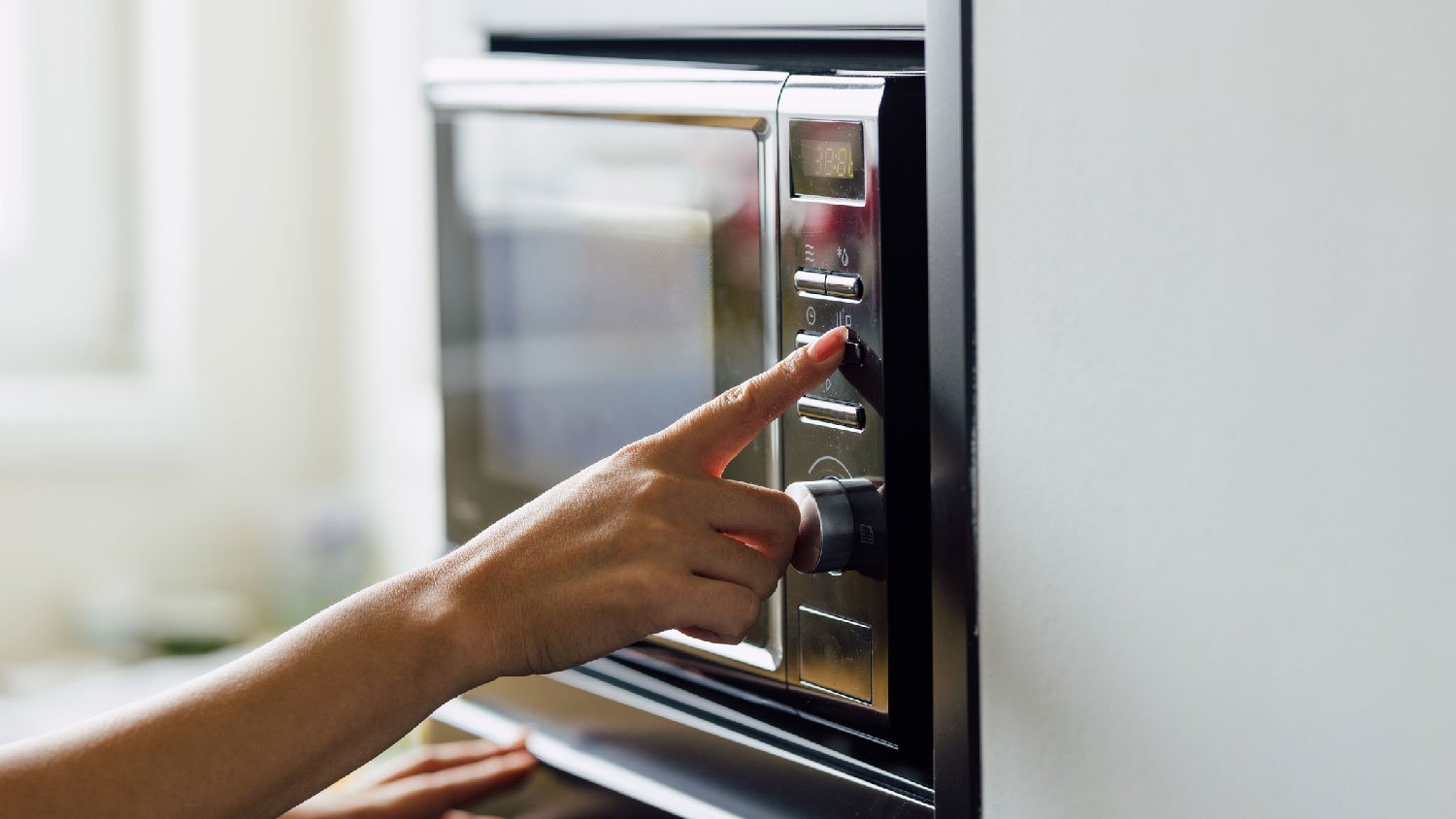14 Surprising Things You Shouldn’t Put Down Your Garbage Disposal
Some waste is better tossed in the trash


Garbage disposals are a convenient way to get rid of food waste without letting it linger in your trash can and stink up your house. But though they’re handy, they’re not meant for everything—and there’s some stuff you should never put down them.
Misusing your garbage disposal can damage your appliance, the pipes, or both. Here’s what not to put in a garbage disposal.
1. Expandable Foods
Foods such as pasta, rice, oatmeal, and bread retain water, which causes them to expand. So even if they initially go down the garbage disposal smoothly, when water hits them in your pipe, they can clog your drain.
2. Coffee Grounds
Coffee grounds clump together when wet, and can clog up your drain just like pasta and rice can. Instead of risking a hefty bill from a local plumber, consider composting your coffee grounds.
3. Grease, Fats, and Oils
Other foods that shouldn’t go into your garbage disposal are grease, fats, and oils. While a small amount of grease entering your disposal can’t be helped, you should try your best to limit how much actually goes in there.
These substances solidify when cooled, meaning that if they cool in your drain, you’ll have a massive clog. The best way to get rid of grease, fats, and oils is by waiting for the residue to cool, placing it in a sealed container, and throwing it in the trash.
4. Bones
If you have chicken or turkey bones leftover from dinner, there’s only so much your garbage disposal can grind up before you start to shorten its lifespan. While some new, higher-quality models claim to be strong enough to handle rigid bones, it’s better to be safe than sorry and throw them out instead.
5. Nuts
Nuts can also do a number on your garbage disposal, leading to wear and tear. Not only are these hard foods rough on the blades, but softer nuts can turn into a paste when put down the disposal—and end up clogging your drain.
6. Eggshells
Eggshell membranes can stick to the inside of your disposal, hindering performance. Besides that, the shells themselves can cling to other items in the drain and cause a clog. Take a different route after making your Saturday morning scrambled eggs, like composting or trashing them.
7. Potato Peels

Similar to egg membranes, potato peels can get caught on other items in your disposal, clumping together and forming a clog. Another headache scenario: the starch in the potatoes can turn into a paste when ground up, which can also block up your pipes.
8. Fibrous Foods
Fibrous (aka stringy) foods such as celery, pumpkin, corn husks, artichokes, and asparagus can get caught up in your grinder and clog up your pipes.
9. Pits
Putting peach and avocado pits down your disposal is like putting a boulder into a piece of machinery. It’ll have long-lasting impacts on your disposal’s grinding power, leaving it less-effective in the future.
10. Seafood Shells
Like pits, seafood shells are hard enough to do some serious damage to your garbage disposal. And the ones you can grind up will eventually clog up your drain. If you’re not interested in suffering through the smell of old seafood shells, freeze them until it’s time to take out the trash.
11. Large Quantities of Food
Even foods that won’t lead to problems with your disposal can be a headache if you place too much inside at once. Always make sure that you’re only disposing of small amounts of scraps at a time. Anything more, like that veggie side dish that didn’t come out quite as planned, you should trash or compost.
12. Paint
If you’re repainting your kitchen, it’s tempting to drain and rinse your rollers right there in the sink. But latex or oil-based paints don’t flow down the drain without some issues.
Because these types of paints don’t dissolve well in water, they’ll stick to your pipes and can stop other foods from going through properly.
Instead, clean your paint-laden rollers by wiping off as much paint as possible and letting them sit in paint thinner.
13. Harsh Cleaning Chemicals
Using harsh cleaning supplies like bleach and drain cleaners in your garbage disposal can damage your entire drainage system. If you need to clean your disposal, ice, vinegar, and good old-fashioned dish soap can do the trick.
14. Trash
Any non-food items like rubber bands, plastic, twist ties, cigarette butts, pull tabs, and wrappers don’t belong in your disposal and won’t break down—no matter how long you run the appliance.
4 Foods You Can Throw in the Garbage Disposal
So, what does that leave you? While what you can’t put down your disposal might seem overwhelming, there’s still plenty of food waste this machine can tackle.
1. Fruit and Vegetable Scraps
While there are definitely some exceptions (see the fibrous foods and potato peels above), it’s generally safe to dispose of fruits and veggies through your disposal.
2. Citrus Rinds
The rinds from citrus fruits, such as lemons and oranges, are safe and easy on your garbage disposal. Plus, they work as a freshener and neutralize any odors.
3. Cooked Meats
Chopped-up cooked meats are also safe for your appliance.
4. Ice
Placing ice in your garbage disposal can help you dislodge some food that’s probably stuck to the blade. And because ice breaks down on its own, you don’t have to worry about it causing any clogs.




- Window A/C Repair
- Microwave Repair
- Small Appliance Repair Services
- Garbage Disposal Repair
- Emergency Appliance Repair Companies
- GE Appliance Repair
- Samsung Appliance Repair
- Samsung Microwave Repair
- Whirlpool Repair
- Maytag Appliance Repair
- Kitchenaid Mixer Repair
- Kenmore Appliance Repair
- Kenmore Vacuum Repair
- Bosch Appliance Repair
- Kenmore Refrigerator Repair
- LG Appliance Repair Services
- GE Microwave Repair
- Electrolux Appliance Repair
- Electrolux Vacuum Repair










